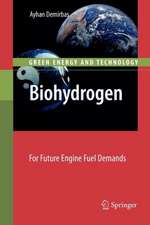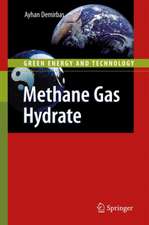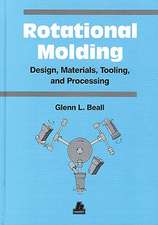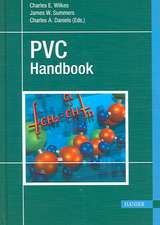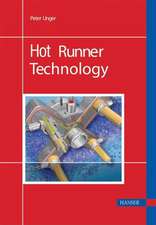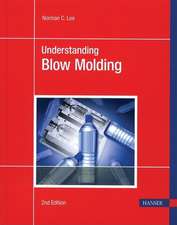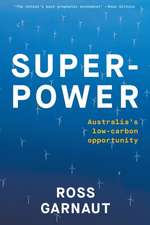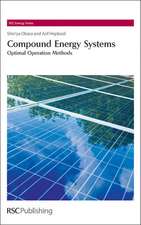Biodiesel: A Realistic Fuel Alternative for Diesel Engines
Autor Ayhan Demirbasen Limba Engleză Paperback – 13 oct 2010
The greatest drawback of using pure vegetable oils as fuels are their high viscosity, although this can be reduced by techniques such as dilution, micro-emulsification, pyrolysis or transesterification. Of these processes, the transesterification of vegetable oil triglycerides in supercritical methanol has been shown to be particularly promising, producing high yields of low-viscosity methyl esters without the need of a catalyst. Furthermore,these methyl esters have a considerably lower flash point than that of pure vegetable oils.
Biodiesel: A Realistic Fuel Alternative for Diesel Engines describes the production and characterisation of biodiesel, along with current experimental research work in the field. The book will be of great interest to advanced undergraduates, postgraduates and researchers in renewable energy, as well as to fuel engineers.
| Toate formatele și edițiile | Preț | Express |
|---|---|---|
| Paperback (1) | 636.63 lei 6-8 săpt. | |
| SPRINGER LONDON – 13 oct 2010 | 636.63 lei 6-8 săpt. | |
| Hardback (1) | 642.03 lei 6-8 săpt. | |
| SPRINGER LONDON – 20 mar 2008 | 642.03 lei 6-8 săpt. |
Preț: 636.63 lei
Preț vechi: 748.97 lei
-15% Nou
Puncte Express: 955
Preț estimativ în valută:
121.87€ • 125.41$ • 102.73£
121.87€ • 125.41$ • 102.73£
Carte tipărită la comandă
Livrare economică 01-15 martie
Preluare comenzi: 021 569.72.76
Specificații
ISBN-13: 9781849966962
ISBN-10: 1849966966
Pagini: 220
Ilustrații: X, 208 p.
Dimensiuni: 155 x 235 x 12 mm
Greutate: 0.31 kg
Ediția:Softcover reprint of hardcover 1st ed. 2008
Editura: SPRINGER LONDON
Colecția Springer
Locul publicării:London, United Kingdom
ISBN-10: 1849966966
Pagini: 220
Ilustrații: X, 208 p.
Dimensiuni: 155 x 235 x 12 mm
Greutate: 0.31 kg
Ediția:Softcover reprint of hardcover 1st ed. 2008
Editura: SPRINGER LONDON
Colecția Springer
Locul publicării:London, United Kingdom
Public țintă
ResearchCuprins
Biofuels.- Vegetable Oils and Animal Fats.- Biodiesel.- Biodiesel from Triglycerides via Transesterification.- Fuel Properties of Biodiesels.- Current Technologies in Biodiesel Production.- Engine Performance Tests.- Global Renewable Energy and Biofuel Scenarios.- The Biodiesel Economy and Biodiesel Policy.
Notă biografică
Ayhan Demirbas is a full professor at Sila Science and Energy. He was a professor in Energy Technologies Science at Karadeniz Technical University, Turkey, between 1991 and 2001, and at Selcuk University, Turkey, from 2003 to 2007. His research is mainly concerned with renewable and sustainable energy.
Textul de pe ultima copertă
Environmental and political concerns are generating a growing interest in alternative engine fuels such as biodiesel. Biodiesel is a renewable energy source produced from natural oils and fats, which can be used as a substitute for petroleum diesel without the need for diesel engine modification. In addition to being biodegradable and non-toxic, biodiesel is also essentially free of sulfur and aromatics, producing lower exhaust emissions than conventional gasoline whilst providing similar properties in terms of fuel efficiency.
The greatest drawback of using pure vegetable oils as fuels are their high viscosity, although this can be reduced by techniques such as dilution, micro-emulsification, pyrolysis or transesterification. Of these processes, the transesterification of vegetable oil triglycerides in supercritical methanol has been shown to be particularly promising, producing high yields of low-viscosity methyl esters without the need of a catalyst. Furthermore, these methyl esters have considerably lower flash points than those of pure vegetable oils.
Biodiesel: A Realistic Fuel Alternative for Diesel Engines describes the production and characterization of biodiesel, along with current experimental research work in the field. The book will be of great interest to advanced undergraduates, postgraduates and researchers in renewable energy, as well as to fuel engineers.
The greatest drawback of using pure vegetable oils as fuels are their high viscosity, although this can be reduced by techniques such as dilution, micro-emulsification, pyrolysis or transesterification. Of these processes, the transesterification of vegetable oil triglycerides in supercritical methanol has been shown to be particularly promising, producing high yields of low-viscosity methyl esters without the need of a catalyst. Furthermore, these methyl esters have considerably lower flash points than those of pure vegetable oils.
Biodiesel: A Realistic Fuel Alternative for Diesel Engines describes the production and characterization of biodiesel, along with current experimental research work in the field. The book will be of great interest to advanced undergraduates, postgraduates and researchers in renewable energy, as well as to fuel engineers.
Caracteristici
Describes the production and characterisation of biodiesel, along with current experimental research work in the field Includes supplementary material: sn.pub/extras





